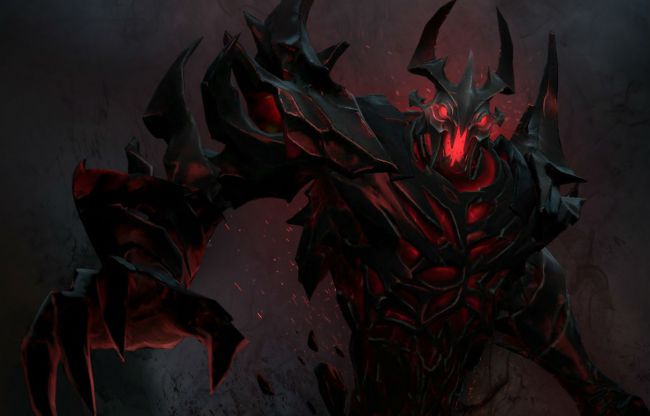Elon Musk heralds the future of AI as a Dota 2 bot beats a human champ
*Some conditions apply.

Something very interesting happened in the world of Dota 2 this weekend, and it wasn't The International. (Although that was obviously pretty big too.) As reported by The Verge, a self-taught AI bot took on pro player Danil "Dendi" Ishutin of Natus Vincere—and won convincingly.
The bot was designed by OpenAI, a non-profit AI research company founded and funded by, among other people, Tesla and SpaceX guy Elon Musk, who shared his satisfaction with the outcome on Twitter.
OpenAI first ever to defeat world's best players in competitive eSports. Vastly more complex than traditional board games like chess & Go.August 12, 2017
And that's true, but only to a point. It turns out a few conditions heavily arranged the match in the bot's favor, meaning we don't have to worry about robots taking over competitive esports just yet.
The OpenAI game was played under a very specific set of rules: It was a 1v1 contest rather than 5v5, which dramatically reduces the complexity of the gameplay, and both the bot and Dendi played with the same hero, Shadow Fiend, who as this Verge analysis explains relies on "accurate timing and placement of his magical attack ability" to succeed—the type of precision that bots naturally excel at. In fact, that's the only type of game the bot is capable of playing.
The AI also had access to Dota's bot API, meaning that it would have access to information like the distance between characters, as well as hard-coded player "techniques." So while a human player has to learn and judge distances on the fly and react accordingly, bots can execute the appropriate attacks exactly, every time.
While that may appear to diminish the significance of the bot's win, Greg Brockman of OpenAI said that it remains a big deal because of the way the AI learned to play the game. Previously, bots have built their knowledge from records of past victories won by humans, but the Dota bot learned primarily through experience.
"You have this system that has just played against itself, and it has learned robust enough strategies to beat the top pros. That’s not something you should take for granted,” Brockman said. “And it’s a big question for any machine learning system: How does complexity get into the model? Where does it come from?"
The biggest gaming news, reviews and hardware deals
Keep up to date with the most important stories and the best deals, as picked by the PC Gamer team.
The full story behind the AI victory won't really be known until a thorough analysis is released, but it is worth noting that once players were able to see the bot in action and got to know its tactics, they were able to compensate and beat it fairly handily. Even so, it's unquestionably a step on the path toward bigger and (maybe) better things, a point Musk mused on immediately after tweeting about the OpenAI's Dota 2 victory:
If you're not concerned about AI safety, you should be. Vastly more risk than North Korea. pic.twitter.com/2z0tiid0lcAugust 12, 2017
Dendi, who was a good sport about the competition, is on the same page.
Didn't wait until Machines going to start the war against Humanity and kicked vacuum cleaner with my leg !August 12, 2017

Andy has been gaming on PCs from the very beginning, starting as a youngster with text adventures and primitive action games on a cassette-based TRS80. From there he graduated to the glory days of Sierra Online adventures and Microprose sims, ran a local BBS, learned how to build PCs, and developed a longstanding love of RPGs, immersive sims, and shooters. He began writing videogame news in 2007 for The Escapist and somehow managed to avoid getting fired until 2014, when he joined the storied ranks of PC Gamer. He covers all aspects of the industry, from new game announcements and patch notes to legal disputes, Twitch beefs, esports, and Henry Cavill. Lots of Henry Cavill.

